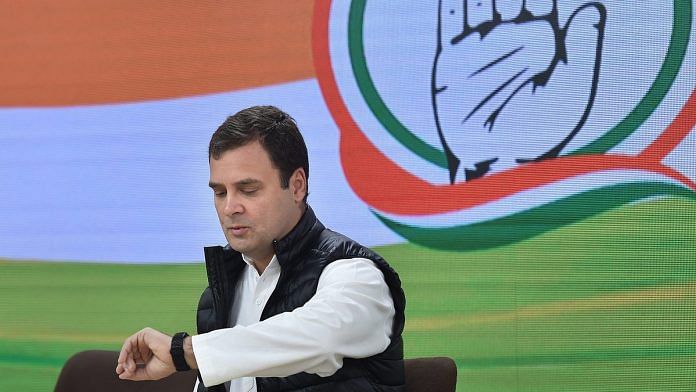Monday, 22 April: The Easter Sunday suicide bomb attacks in Sri Lanka get editorial comment in Amar Ujala and Dainik Jagran.
In “Sri Lanka me khooni Easter”, Ujala writes that the political instability over the last few years has given extremists fertile ground. India needs to be careful and stand with Sri Lanka.
Jagran says the serial blasts killing over 200 people in different locations, indicate a well-planned conspiracy. The targets were Christians and foreigners. In the past the Sinhalese Buddhists have had issues with Tamils and Muslims but no major tensions existed between the minority Christians and other communities. A bruised Sri Lanka is a reminder to the world that terrorism is the biggest challenge to humanity.
Tuesday, 23 April: The editorials in Amar Ujala, Dainik Bhaskar and Dainik Jagran relate to Congress president Rahul Gandhi’s apology to the Supreme Court on attributing his remark “chowkidar chor hai” – about Prime Minister Narendra Modi – to the Supreme Court.
Bhaskar’s “Dikhta hai woh sach nahin, jo sach hai woh dikhta nahin” observes that poll season is full of allegations and counter allegations and all that the Election Commission can do is to issue notices to those who disobey the model code of conduct. Rahul Gandhi’s reply to the Supreme Court was a formality. He said that he made the remarks in the heat of moment of election campaign: “Lijiye, raat bhar ramayan padhi aur subah sab kutch bhool gaye,” remarks the editorial.
Ujala feels Rahul Gandhi expressed regret because he had no option. Even Modi and Bharatiya Janata Party (BJP) president Amit Shah had touted the 14 December 2018 Supreme Court verdict on Rafale as a “clean chit” for it. This tendency to present facts according to one’s convenience and without proper perspective stains the reputation of our institutions, adds Ujala.
Jagran asks a pertinent question: Rahul Gandhi’s excuse in the court was that he attributed “chowkidar chor hai” to the Supreme Court in heat of electioneering – will he also claim that his statement that all Modis are thieves was due to heat of campaigning?
Wednesday, 24 April: Dainik Jagran comments on the US withdrawal of the waiver given to India and other countries to buy oil from Iran. It calls it “manmaani“. It will lead to a rise of petroleum prices in the world market which will have an adverse impact on India’s and the world economy. How can US be allowed to dictate terms to the world? If strictures had to be passed against Iran, it’s the job of the United Nations.
Thursday, 25 April: Dainik Bhaskar also talks of the challenges India will face after US President Donald Trump’s tough stance against Iran. India will face a major economic challenge as it imports 80 per cent of its oil and 10 per cent comes from Iran. A one dollar increase in oil prices translates into an additional burden of Rs 11,000 crore to the exchequer. All international trade happens through US bank channels in dollars and any country which tries to flout the American ban will not be able to use these channels. This will compound India’s economic problems, Bhaskar argues.
Friday, 26 April: Dainik Bhaskar editorial says the Supreme Court is in the news again but for all the wrong reasons with the latest charges of sexual harassment against Chief Justice of India Ranjan Gogoi and the related bench-fixing allegations.
There have been other controversies too: first, it was the press conference by four judges last January, then uploading wrong information on the SC website in the Anil Ambani case, followed by the government claiming typing errors in the Rafale case – the rot seems to have spread.
Now, one cannot take the bench-fixing charges lightly. If there is an iota of truth in these charges, there will be a question mark on our judicial system. The charges against the CJI need to be addressed quickly. The longer it takes to resolve these cases, the more complicated it will become, says Bhaskar.
Dainik Jagran says a lawyer’s claim that the charges against the CJI of sexual harassment have been made by those who are behind bench-fixing should be examined quickly. Also, there is a need to ensure that a system is in place that no such alleged fixing occurs ever again.






